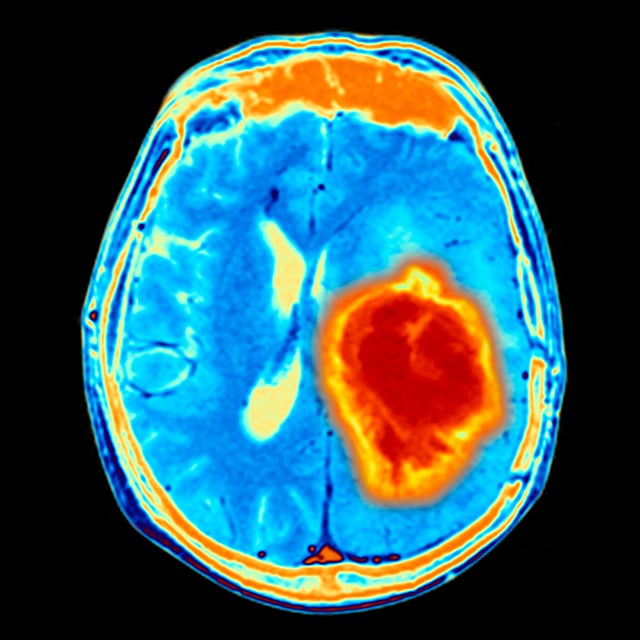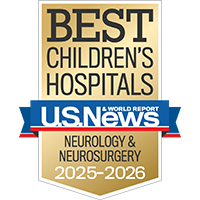Translation, please
We have interpreters for Cantonese, Mandarin, Spanish, Russian, American Sign Language and more.
Request an interpreter

Choroid plexus tumors are rare growths of cells that form in the choroid plexus, a vascular structure inside the brain's ventricles – a network of chambers filled with cerebrospinal fluid. Choroid plexus tumors are divided into two types – papillomas and carcinomas. Together, choroid plexus tumors account for fewer than 1 percent of pediatric brain tumors.
Most choroid plexus tumors are benign. The prognosis, or likely outcome of the disease and chance of recovery, for a choroid plexus tumor depends on many factors, including:
Choroid plexus tumors are grouped into three grades based on specific characteristics:
Because these tumors grow in the brain's ventricular system, they often block the flow of cerebrospinal fluid, causing a buildup of fluid and pressure called hydrocephalus. Symptoms of hydrocephalus usually include headaches, vomiting and occasionally weakness of the arms or legs.
Choroid plexus tumors are usually diagnosed based on their appearance and location. These tumors are located in the ventricles of the brain and have a cauliflower-like appearance which often helps distinguish them from other types of brain tumors. The diagnosis is done using images from an MRI scan of the child's brain.
Choroid plexus carcinomas can, however, resemble other types of malignant tumors, and the diagnosis is often only confirmed after a pathologist has examined a sample of tissue taken during surgery.
A choroid plexus tumor is a serious condition that needs to be treated by a team that includes neurosurgeons, neuro-oncologists and radiation oncologists. As with most tumors, we treat this condition with a combination of surgery, radiation or chemotherapy.
Surgery for choroid plexus tumors
Surgical removal of the tumor is the most effective treatment for choroid plexus tumors. Surgery often cures choroid plexus papillomas, and patients with choroid plexus carcinomas have improved outcomes when the tumors can be completely removed.
Choroid plexus tumors often contain many blood vessels. To make surgery safer, in some cases we first do a minimally invasive procedure called embolization that blocks blood supply to the tumor.
Chemotherapy for choroid plexus tumors
Aggressive chemotherapy, with or without high-dose chemotherapy with stem cell rescue, is often used in patients with choroid plexus carcinomas. Stem cell rescue is used to replace blood-forming stem cells that were destroyed by high doses of anticancer drugs. Several small studies suggest that aggressive chemotherapy improves outcomes, especially in patients with tumors that could not be completely removed with surgery.
Radiation therapy for choroid plexus tumors
Radiation therapy can be an effective treatment for choroid plexus carcinomas. However, high doses of radiation can be toxic to the developing brains of young children. Radiation therapy is, therefore, often reserved for patients whose tumors have recurred after initial treatment, or for those with metastatic disease who do not respond to chemotherapy.
UCSF Benioff Children's Hospitals medical specialists have reviewed this information. It is for educational purposes only and is not intended to replace the advice of your child's doctor or other health care provider. We encourage you to discuss any questions or concerns you may have with your child's provider.


One of the nation's best for neurology & neurosurgery

in NIH funding among U.S. neurology programs

Ranked among the nation's best in 11 specialties
Translation, please
